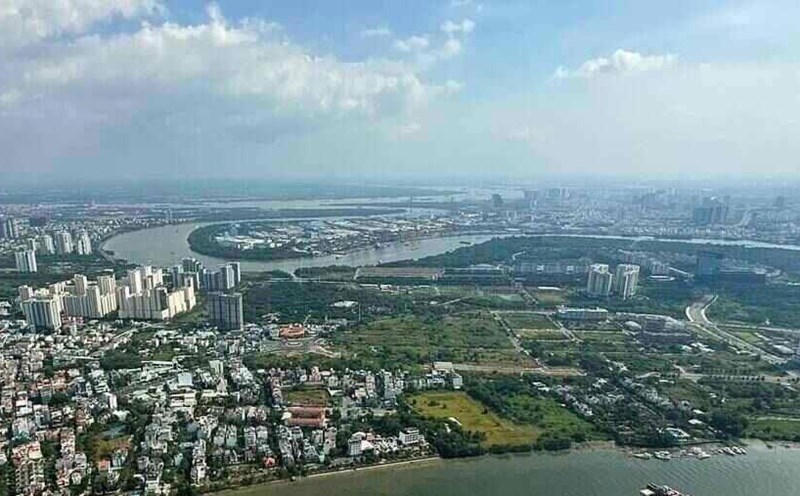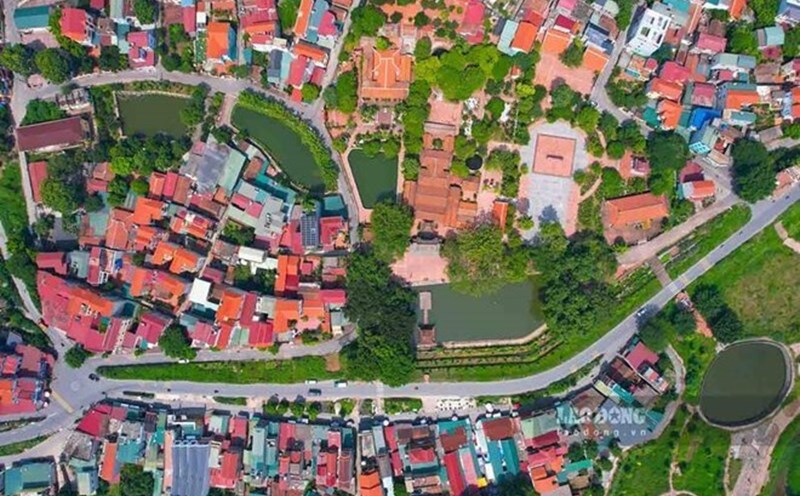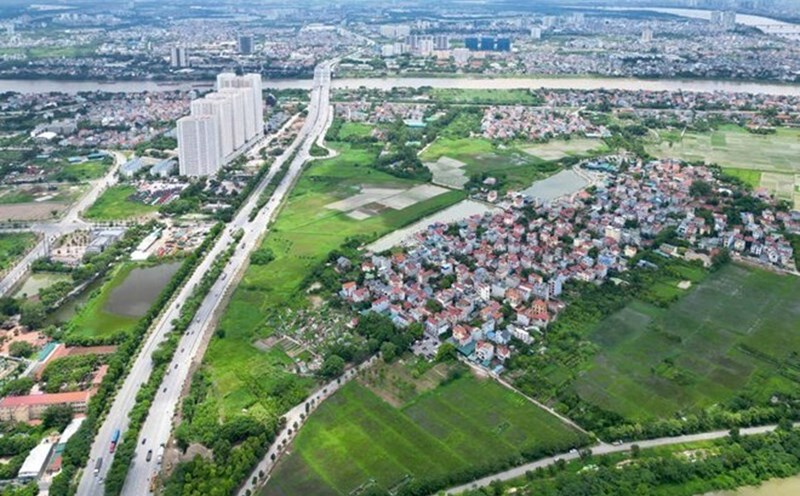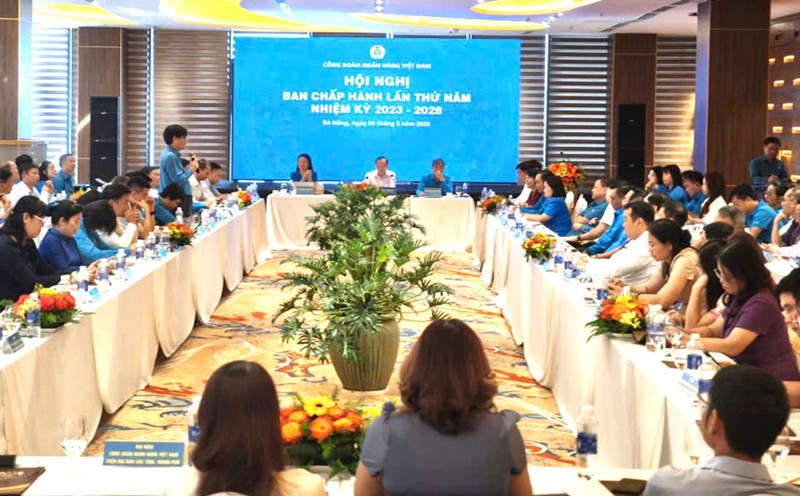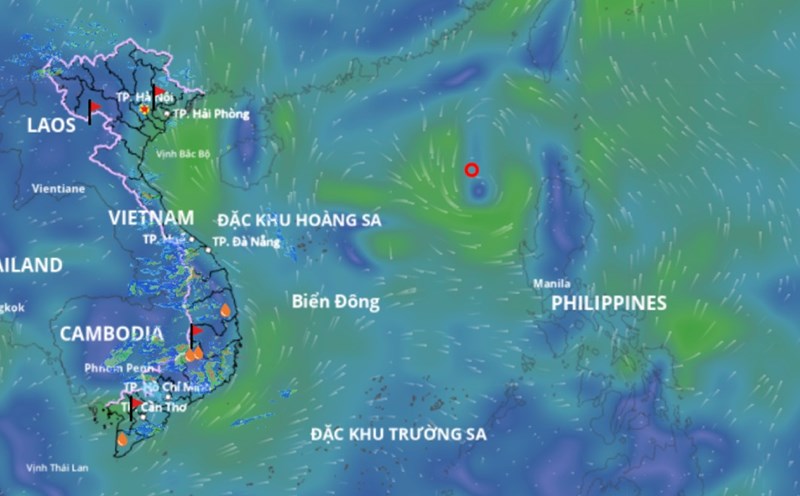Land valuation avoids dependence on the secondary market
On August 8, the Ministry of Agriculture and Environment held a conference to collect comments from ministries, departments, branches and provinces and cities in the Northern region on the draft Law amending and supplementing a number of articles of the 2024 Land Law.
Speaking at the conference, Deputy Minister of Agriculture and Environment Le Minh Ngan emphasized that after one year of implementation, many provisions have quickly come into life, contributing to improving the effectiveness of state management of land, ensuring resources for socio-economic development, and strengthening national defense and security. However, the new context requires the land legal system to continue to be improved.
According to the Deputy Minister of Agriculture and Environment, the points proposed for this amendment are not many but are all important issues.
Regarding land finance and land prices, Mr. Ngan said that determining land prices through many years of organization has many shortcomings. The draft continues to affirm the principle that land prices must be close to market prices, ensuring fairness and transparency. The spirit is that this land price is easy to do, easy to implement, and safe for cadres.
Mr. Ngan cited that previously, localities such as Hanoi at the Central Conference shared that the whole city of thousands of projects only has 2 land valuation units. The assignment of the State's entire authority to the land valuation consultancy unit has theoretically lost the State's decision-making rights as the representative of ownership in land price decision-making.
Therefore, the viewpoint this time is to strengthen State management of land with market principles, the State decides on land prices close to the market.
According to Deputy Minister Le Minh Ngan, the market always has two levels: primary and secondary markets. And it is true that the market always has a difference, but the regulation of input methods for determining land prices in the secondary market will cause land prices to increase non-stop - this is a mistake.
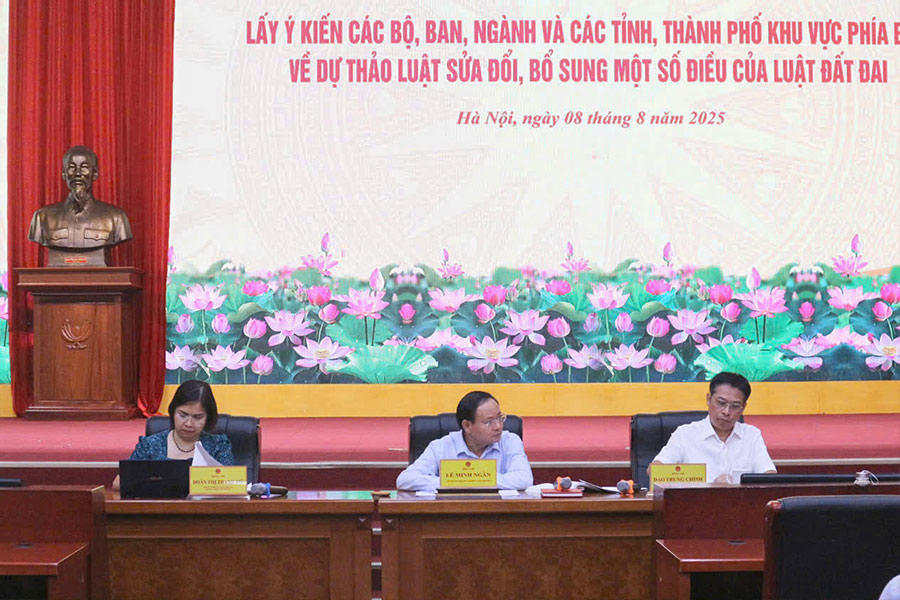
Flexible compensation and land recovery procedures
At the conference, Mr. Dao Trung Chinh - Director of the Department of Land Management - emphasized that due to the new situation, there are requirements for amending and supplementing laws to suit, such as implementing the 2-level model...
Mr. Chinh also shared about new points in the Draft Law amending the 2024 Land Law. Regarding land recovery, 2 cases will be added to Article 79. These are the implementation of projects with specific requirements for investment locations; investment projects, urgent services for political and foreign affairs tasks; projects in free trade zones, in international financial centers; logistics projects; mixed-use projects for residents, urban areas, tourism, commercial services, culture, sports; cultural industrial projects and other socio-economic development projects decided by the Provincial People's Council in accordance with local actual conditions.
Regarding compensation and resettlement support, Director Dao Trung Chinh said that the draft Law amends and supplements the following cases: In case the land user or owner of property attached to the land agrees to reclaim the land before approving the compensation, support and resettlement plan, the Chairman of the People's Committee of the commune where the land is reclaimed will decide to reclaim the land before approving the compensation, support and resettlement plan.
In case of land recovery where the land user or owner of the property attached to the land has been arranged temporary residence or paid temporary residence fees and agrees to recover the land before completing the resettlement arrangement, the Chairman of the People's Committee of the commune where the land is recovered shall decide to recover the land before completing the resettlement arrangement".

